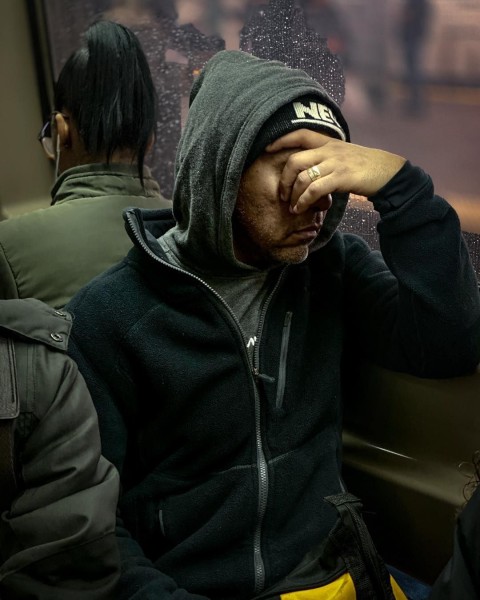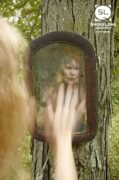Charles is my blood and what he feels, I feel. From the overhead vent, a soft breeze cools the sweat of his neck. I experience the small blessing of it, seeing him lean soft arms onto the checkout counter. My brother is dressed in the same black suit he wears to all our dinners. Charles is baldheaded like me, although my bony pate is covered–in the way of middle-aged men and ball players like the young Turk I saw near the refrigerator section of this CVS–in a ball cap.
The cashier assumes my brother and I are strangers. It is true we haven’t greeted each other. Before him on the counter is a cheap, lime-green phone charger. It’s clear he’s been here a while. The cashier beckons me to the second register. Charles regards the charger.
“What happened?” I call over. The cashier is ringing up my eggs, bacon, bottle of wine. I am using CVS as my market. Also, my bank. I press the buttons that add $20 “cash back” to my tab.
“My charger! I just bought it this morning.” my brother says, looking past my face. “It was stolen. From the coffee shop!”
“Your phone charger was stolen?” Now it comes to me: my brother’s smell. The greasy suit, the unwashed hair.
A small line is forming. The cashier gives a little huff. “I told you, sir, it’s about $11.95 with tax,” she tells Charles. I am alert to the small note of irritation. It isn’t often I am witness to my brother’s lived and public days.
“Are you at the shelter over near the church?” I continue, sliding my card back into my wallet. The cashier shakes her head slightly. She wears those gigantic, bamboo-style gold hoops that were popular twenty years ago or so. The kind that have to be hollow, since they aren’t elongating her lobes.
I know our conversation can wait. Charles and I are meeting for an early dinner. It’s just happenstance we’re both here at CVS across the parking lot from the coffee shop where apparently Charles spent at least part of the afternoon.
I’ve bought the wine, the breakfast supplies as a kind of reward for myself, I guess. A way to recognize my immense humanitarianism, meeting my brother at a neutral location to buy him a patty melt and some coffee which he’ll ask to have refilled at least five times before we shake hands goodbye. My big brother also smells of urine; who wouldn’t?
“Could you–” the cashier gestures to the line.
“I think he’s next,” I say, leaning over to palm Charles the twenty. My brother gives a brusque nod. Passes wind. Isn’t it the strangest thing, how a person’s farts can smell exactly the same after years and miles and the horribly-timed breakdowns?
“Yeah, no; The Berkeley Shelter. Took the bus.” He flashes the flip phone as if to show the cashier, me, and the line of tired workers who are waiting that he does have a machine to be enlivened by the charger. I start for the door.
“Gotta have a phone,” says the young Turk in the baseball uniform. Kindly, I want to believe. I startle when the glass door emits its electronic chime. My brother is the first to guffaw.
“Yo, Charles,” I call back to my brother. He gives me a little half-salute that was a thing of his in high school. Our yearbook mentions it under his photo. “I’ll see you over there, man.”
I have a couple of minutes to pop my trunk and deposit my bounty. Wine to soothe me after our visit. I’ll empty the bottle, imagining my brother telling the bus driver, then his dorm-mates at the shelter about his brother hooking him up with a brand-new charger and a princely meal. All the coffee he wanted.
I’ll still be thinking of him when I awaken in the morning, temples thumping and gauze-mouthed. I’ll think of my brother’s half-salute as I fry up my bacon and eggs, grease seeping into my clothes.

Notes from Guest Reader
‘Over there’ by Patricia Q. Bidar affected me on so many levels. Besides being beautifully written, it motivates readers to look deeper inside themselves and to analyze the uncomfortable. It also deals with something that I always admire when writers can pull off, and that’s the beauty and complexity of family bonds and how we can never really quit them no matter how hard or little we try.


 The core workshop of SmokeLong Fitness is all in writing, so you can take part from anywhere at anytime. We are excited about creating a supportive, consistent and structured environment for flash writers to work on their craft in a community. We are thrilled and proud to say that our workshop participants have won, placed, or been listed in every major flash competition. Community works.
The core workshop of SmokeLong Fitness is all in writing, so you can take part from anywhere at anytime. We are excited about creating a supportive, consistent and structured environment for flash writers to work on their craft in a community. We are thrilled and proud to say that our workshop participants have won, placed, or been listed in every major flash competition. Community works.